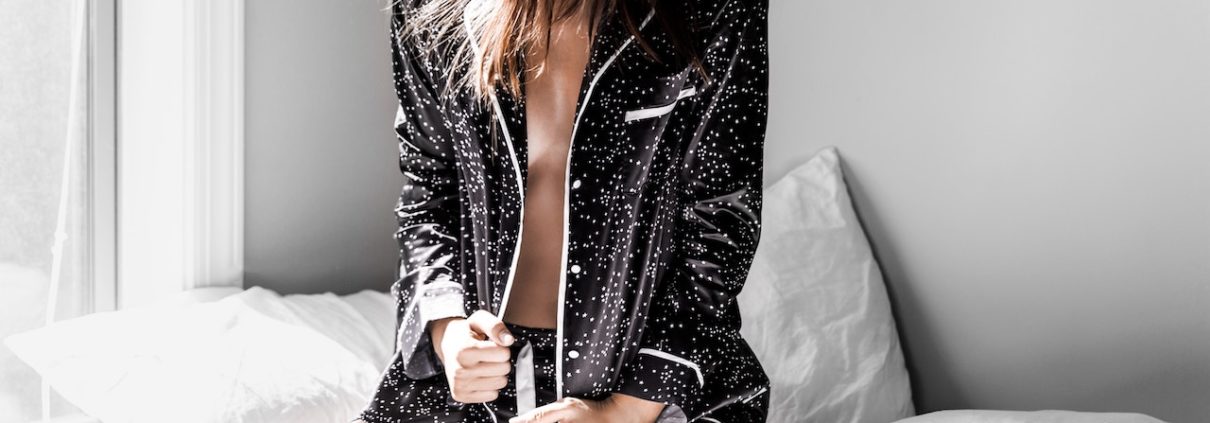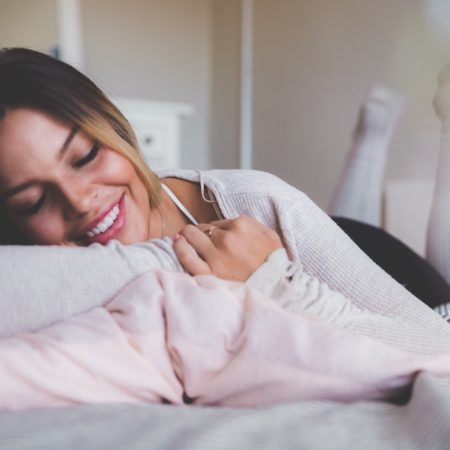How To Sleep In Hot Weather?
It’s not a secret that almost everyone struggles with sleep during hot summer nights. Hot and humid nights cause difficulties in falling and staying asleep; it reduces sleep time and efficiency. Body temperature regulation plays a vital role in sleep mechanisms. When the environmental temperature is high, it is harder for the body to get rid of the heat and cool itself down.
A lower core body temperature goes hand in hand with deep and restorative sleep, while elevated core body temperature makes it challenging.
If you want to maintain your sleep during summer heatwaves, you should consider these three factors :
Lower Core Body Temperature
Temperature is a critical time cue of human circadian rhythm (biological clock) and plays an essential role in sleep regulation. By changing the environmental temperature or skin temperature, we can influence the core body temperature and improve sleep significantly.
All we need is a small temperature gradient of our core body temperature (for example from 37 C to 36,4 C), which reduces alertness and makes sleep more inviting.
The body temperature is partially regulated by the small subcutaneous vessels in the peripheral skin regions. If these blood vessels dilate more blood can rush in. With the blood, the temperature can be released to the exterior environment.
This happens especially in the vessels of the feet and the hand. It is one mechanism how the body releases heat through the skin, and it happens precisely during sleep.
So how to cool down body temperature?
Tip 1. An excellent way to lower your body temperature is taking a cold shower. It’s not cold water that lowers the core body temperature but the time after the initial rush when you relax and the peripheral skin vessels dilate to release more heat.
Tip 2. Another way to reduce a body core temperature is by wearing socks at night, which is probably more indicated during the colder months of the year. The socks warm the peripheral skin vessels of the feet, which gives possibilities for the body to release heat with the blood flow from the core to the skin.
One of the secrets of deep and restorative sleep lies in the thermoregulation of your body’s heating and cooling system. You can check my previous blog post for more details.
Tip 3. Late dinners generate high body temperature.
It’s not recommended to consume food 3-hours before bedtime. Your body will take time to process food, meaning it will be working in full power and producing heat.
Early dinners low in carbohydrates help to maintain Insulin and Leptin sensitivity, keep the gut microbiome healthy and maintain the gut lining stable, which reduces general inflammation! Early light dinners allow you to fall asleep faster, improve sleep quality and energy metabolism.
Tip 4. Melatonin is the natural cooler of body temperature.
The sleep hormone melatonin is released in the pineal gland of the brain in the evening with the lower blue light frequencies during sunset and in conditions of absolute darkness at night. Melatonin rushes through our systems to find many receptors with different functions.
There are some receptors in the peripheral skin vessels, and when enough melatonin docks onto these receptors, the skin vessels dilate to release heat and reduce core body temperature.
Note that a sufficient surge of Melatonin only occurs in complete darkness. If you are struggling to fall asleep, consider taking 5mg of Melatonin as a supplement. Check out my previous blog post on Melatonin supplementation.
Lower Room Temperature
The temperature of our surrounding environment is a critical factor influencing sleep. If the ambient temperature is too high, your body will have difficulties in releasing heat.
Tip 5. Reduce your room temperature. Scientific research showed that the best sleeping temperature in summer is 19°C (66.2°F). If 19°C is too uncomfortable, you can slightly increase the temperature and see if you sleep better. The adaptation to the thermal environment differs between people.
Tip 6. Keep windows and blinds closed on a hot day. Get a blackout curtain to eliminate any outside artificial light and keep your bedroom room in complete darkness. Even dim blue light can interfere with the melatonin secretion during the night.
Tip 7. Alternatively, use a comfortable sleep mask like the handmade cotton sleep mask or the Sleepmaster Sleep mask to maintain your sleep through the night.
Lower The Temperature Of Your Bedding
Tip 8. If you can’t sleep naked, use light cotton sleepwear, its breathable and absorbs sweat. High-quality cotton is the perfect material for bed linen and delicate blankets. The right sleepwear should make it easy to release the bodies heat into the environment, so it is not accumulating under your coverage.
Tip 9. Opt for the seasonal type of mattresses. The summer side has surface fillings which absorb and release body heat to the environment when the winter side designed to retain hit. All you have to do is to turn your mattress around once a year!
There is a thermal neutral zone in which we sleep best. Thermoneutrality inside the bed lies around 30ºC, which is comfortable to maintain healthy sleep.
Tip 10. If you want to cool down in bed, use ChiliPad cooling systems for mattresses, it become popular all over the world. ChiliPads are not only trending among athletes and high performers but regular people as well.
The ChiliPad regulates the temperature of your bed, keeps your mattress fresh, helping you get better sleep and improve longevity. Full range of products and detailed descriptions you can find on the chilitechnology.com
Tip 11. Or you can use Cooling Gel Mattress Topper, which will help you to cool down and maintain a comfortable bedding temperature.
I hope this article will help you to get better sleep during the hot summer nights.





Leave a Reply
Want to join the discussion?Feel free to contribute!